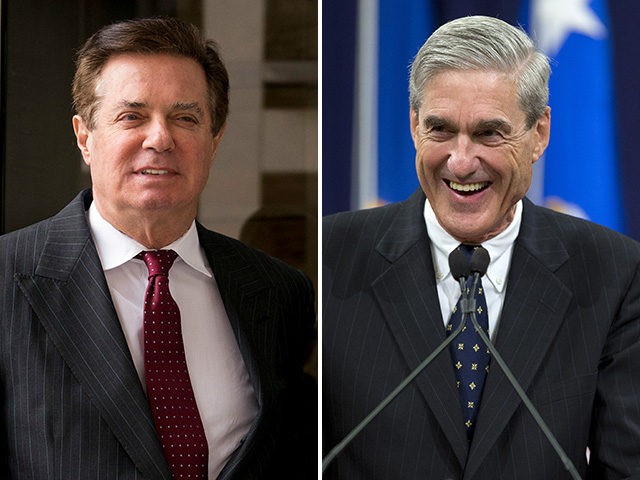The identities of five witnesses special counsel Robert Mueller immunized to testify against former Trump campaign chairman Paul Manafort were unsealed by a federal Judge on Monday.
Court documents show James Brennan, Donna Duggan, Conor O’Brien, Cindy Laporta, and Dennis Raico were granted immunity after the five individuals indicated they wouldn’t testify or provide other information “on the basis of their privilege against self-incrimination,” Mueller’s office told a federal judge in Virginia last Tuesday.
Tony Podesta, once a top D.C. lobbyist and Democrat powerbroker, was not listed among those granted immunity. Fox News Channel host Tucker Carlson last Thursday reported Podesta was offered immunity by Mueller to testify against Manafort in a D.C. court.
Motions providing more information about them were filed under seal, and prosecutors asked a judge to leave the information that way unless and until the witnesses are called to testify.
The Manafort trial, the first arising from Mueller’s investigation into potential coordination between Russia and the Trump campaign, is expected to start at the end of the month.
U.S. District Judge T.S. Ellis III last Tuesday denied Manafort’s request to move the trial from Alexandria, in the Washington, D.C., region, to the more sparsely populated southwestern Virginia city of Roanoke. Manafort’s lawyers said extensive pretrial news media coverage in the Washington region had interfered with Manafort’s right to a fair trial. They also said the population in the northern Virginia area where the Alexandria jury pool would be drawn from voted heavily in favor of Democrat Hillary Clinton over Trump in the 2016 presidential election.
Yet Ellis rejected that argument, saying media attention in the case would be the same in Alexandria “as it would be in Roanoke or Kansas City or Dallas.” He said there was no evidence that potential jurors in the region were politically biased, and that in any event, jurors’ political leanings by themselves aren’t evidence that they can’t fairly consider a case. “It would be inappropriate for courts to move trials around the country in cases of this sort until a district could be found where a defendant’s political views were shared by at least as many persons in the district as those with contrary views,” Ellis wrote.
The Associated Press contributed to this report.

COMMENTS
Please let us know if you're having issues with commenting.